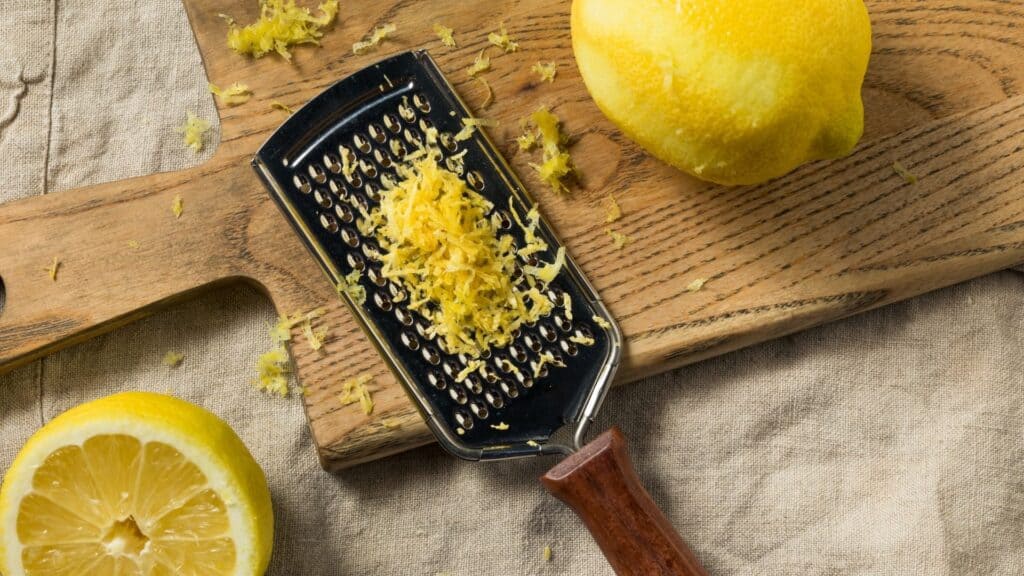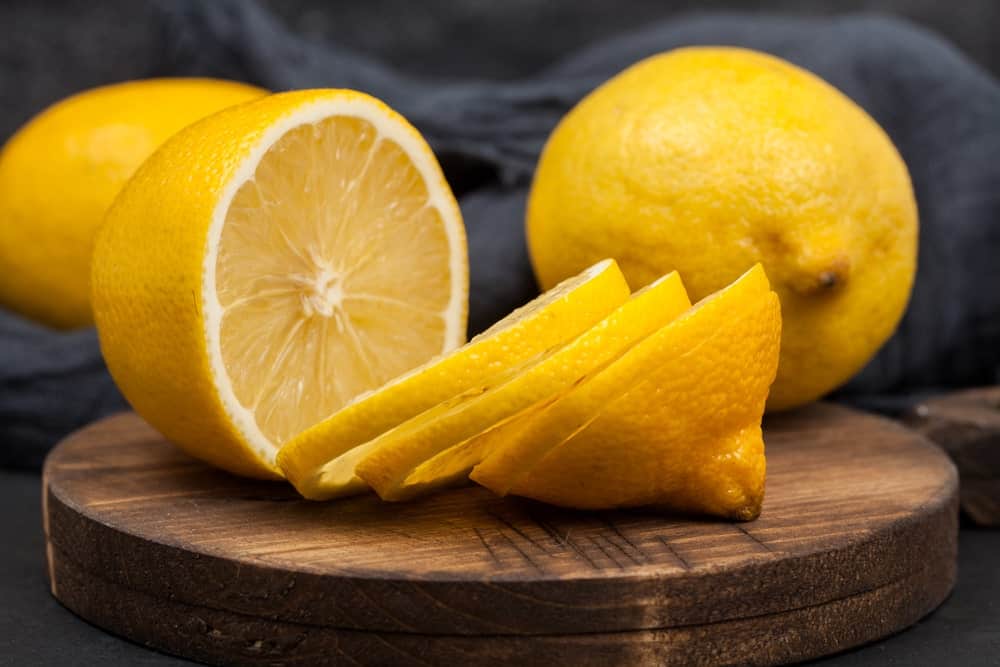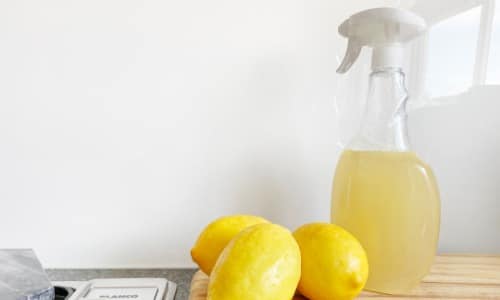Zesting lemons is a great way to add a punch of flavor to your dishes, but it often leaves you with naked lemons that still have plenty of life left in them. No need to let them go to waste! There are several creative and delicious ways to use up these tangy citrus fruits. Whether you’re into sweet treats, savory dishes, or simply love finding new ways to reduce food waste, there’s something for everyone when it comes to using leftover lemons.

After you’ve zested your lemons, the remaining fruit is still full of juice and potential. Consider the many recipes that call for fresh lemon juice—from homemade lemonade to zesty salad dressings or marinades. The lemon’s acidity can also be a game-changer in baking, adding moisture and a bright flavor to cakes and pastries. Plus, don’t forget that lemons have uses beyond the kitchen, including as natural cleaners and deodorizers for your home.
It’s also valuable to think outside the traditional uses and explore preserving the lemons in some way. Have you ever tried making preserved lemons? They’re a staple in many North African cuisines and can be used to bring a unique, fermented tang to a variety of dishes. Or, you could freeze the lemon juice in ice cube trays for easy, long-term storage — perfect for dropping into water or iced tea for a refreshing zing on the go. The possibilities are as refreshing and vibrant as the lemons themselves.
Lemon-Infused Recipes
After zesting lemons, the fruit still has plenty to offer. Explore these recipes that make full use of lemon’s bright flavor, from sweet to savory.
Beverages
- Lemonade: Squeeze the juice from your leftover lemons and mix with water and sugar to taste for a classic, refreshing drink.
- Infused Water: Add slices of lemon peel to your water bottle along with herbs like mint for a subtly flavored hydration option.
Desserts
- Lemon Curd: Transform juice into a tangy spread perfect for toast or yogurt by combining it with butter, eggs, and sugar.
- Pancakes with Lemon Syrup: Whip up a sweet syrup by cooking lemon juice with sugar and pour it over fluffy pancakes.
Savory Dishes
- Lemon Garlic Chicken: Create a zesty marinade with lemon juice, garlic, and herbs to add flavor to your chicken before cooking.
- Grilled Vegetables: Toss your veggies in a mixture of lemon juice, olive oil, and spices before grilling for a delicious charred effect.
Condiments & Dressings
- Lemon Vinaigrette: Emulsify lemon juice with olive oil, honey, and a touch of mustard to dress your salads with a bright kick.
- Lemon Herb Marinade: Mix juice, garlic, and your favorite herbs to marinate meats or brush on while grilling.
Preservation and Storage Tips

Once you’ve zested your lemons, the remaining fruit still holds plenty of potential. Proper storage helps retain freshness and flavor, so let’s look at how you can keep your leftover lemons from going to waste.
Freezing Techniques
Freezing lemon juice: Squeeze the juice from your lemons into an ice cube tray. This preserves the citric acid and keeps the lemon juice fresh for longer. Once frozen, transfer the cubes to a freezer bag, squeezing out excess air to prevent freezer burn and dehydration.
Whole lemons: If you have space, you can freeze whole lemons. Before doing so, place them in a single layer on a baking sheet to freeze individually. After they are solid, pack them in airtight bags, separating each lemon with grease-proof paper to prevent sticking.
Canning & Preserving
Lemon water: Boil equal parts water and sugar to create a simple syrup. Allow it to cool, then pour over your leftover lemons packed in jars. The sugar works as a preservative, and the syrupy lemon water can later be used for beverages or cooking.
Canning lemon slices: With seeds removed, pack the lemon slices tightly in jars, ensuring minimal air is trapped. Fill with fresh lemon juice to cover the slices, adding a pinch of salt or sugar to aid in preservation. Seal your jars and follow proper canning procedures to store your lemons for months.
Household Uses for Leftover Lemons

After zesting your lemons, don’t throw away the rest! These citrus powerhouses can be repurposed to create effective cleaning solutions and serve as natural deodorizers.
Cleaning Solutions
Lemons are a natural disinfectant and can help to brighten surfaces, while the acidity is great for breaking down gunk and grime. Here’s how you can put them to work:
- Microwave Cleaner: Freshen up your microwave by mixing water and a few tablespoons of lemon juice in a microwave-safe bowl. Heat for several minutes until the mixture boils and steam condenses on the window. The steam will help loosen any baked-on food, making it easier to wipe clean.
- Cutting Board Scrub: Sprinkle coarse salt on your cutting board and rub it with a lemon peel. The salt acts as an abrasive, while the lemon’s acidity helps remove any lingering residue.
- Oven Degreaser: Create a paste using water, baking soda, and lemon juice. Apply to the interior of the oven, let sit, then scrub to remove the grease.
- Blender Refresh: To clean and deodorize your blender, blend water with lemon peel, a drop of dish soap, and some fresh herbs. Rinse well and enjoy the fresh scent.
Deodorizing and Freshening
Leftover lemons also excel at neutralizing odors and providing a pleasant scent to various parts of your home.
- Refrigerator Freshener: Place a lemon peel or two inside the fridge to absorb smells and keep it smelling fresh.
- Sink Disposal Cleaner: Run lemon peels through the sink disposal, possibly with a splash of white vinegar, to clean and deodorize the unit.
- Countertop Brightener: Rub your countertop with a halved lemon to remove odors and stains. Wipe clean with a wet cloth, and for special care with organic surfaces, follow with a little olive oil to polish.
- Room Freshener: Boil lemon peels in water on the stove, or place them in a bowl of water with fresh herbs and a little vanilla. The natural fragrance will waft through your space, freshening the air.
With lemon peels so versatile, you’ll find many ways to use them around your home.
Creative Crafts and Decor
After zesting your lemons, there are fun and fragrant ways to repurpose the remaining peel. These ideas will not only add a zesty aroma to your space but also contribute to your home’s aesthetic charm.
Scented Products
You can transform leftover lemon peel into various scented products that bring a fresh, citrusy aroma to your surroundings. Focus on extracting the flavor and scent of the lemons to create these delightful items for your home.
- Potpourri: Dry out the lemon peels and mix them with spices like cinnamon and clove for a natural potpourri.
- Scented Sachets: Combine small pieces of the peel with dried herbs, such as parsley, and place in a cloth sachet to freshen up your drawers.
Decorative Ideas
Using lemon peel can add a sweet yet rustic touch to your decor, providing not just a visual treat but also a subtle fragrance.
- Candle Garnish: Embed pieces of lemon peel into homemade candles for a sweet and citrusy scent when lit.
- Tabletop Accents: Create a beautiful centerpiece by filling a glass vase with lemon peels, water, and floating candles to enhance the ambiance of your dining area.
Remember, these crafts are meant to add an individual touch to your decor, so feel free to get creative and mix up the ingredients to suit your taste. Adding elements like parsley can give an earthy feel, while a sprinkle of dried lemon zest in your creations can intensify the citrus fragrance. Use these ideas as a starting point to brighten your living space with the fresh scent and beauty of lemons.
Frequently Asked Questions

Lemons offer a zesty burst of flavor, and even after zesting, there’s still so much you can do with them. From whipping up a classic beverage to enhancing your meals, these FAQs will guide you through making the most of your leftover lemons.
How can I use fresh lemons to make a refreshing lemonade?
Squeeze the juice from your leftover lemons into a pitcher. For each lemon, add three tablespoons of sugar and a cup of water, then adjust to your taste. Stir well and add ice or chill for a thirst-quenching lemonade.
What are some healthy recipes that include lemon juice?
Lemon juice can brighten up salad dressings, marinades, and grilled vegetables. Combine it with olive oil, garlic, and herbs for a simple vinaigrette. Or use it to marinate chicken and fish for a tangy twist.
Can I freeze lemon zest and juice for later use?
Absolutely. Freeze lemon zest in an airtight container and lemon juice in ice cube trays. Once frozen, transfer the cubes to a freezer bag to add a splash of lemon to dishes anytime.
What inventive dishes can I prepare using lemon pulp?
After juicing, the leftover pulp can add texture to dishes like tabbouleh or be mixed into cake batters. You can also simmer it with sugar to make lemon marmalade.
How do I create lemon simple syrup for cocktails and desserts?
Combine equal parts sugar and water in a saucepan, add the lemon zest, and simmer until the sugar dissolves. Let it cool, strain, and use it to sweeten cocktails or drizzle over cakes.
What are the best ways to utilize leftover lemons and limes in my kitchen?
Use lemon slices to infuse water, teas, or cocktails. Lemon juice and zest can enhance sauces, dips, and seafood. Limes can be used similarly in Mexican and Thai recipes for a citrusy kick.
